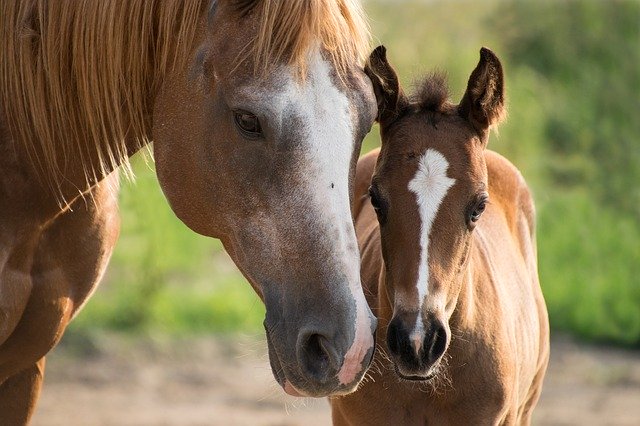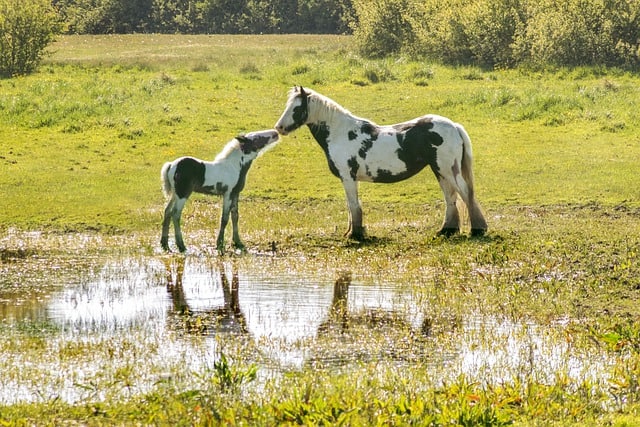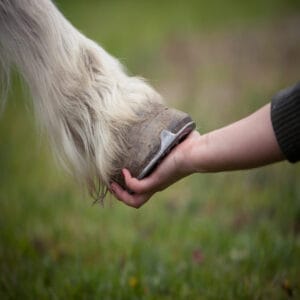The relationship between a mare and her foal is truly special. Most mares are extremely protective over their babies for their first several months of life, and this is especially true for horses living in the wild. Wild foals are vulnerable, and they rely on their mothers for survival. There's always the chance that a foal will develop an illness, become injured, or be attacked by a predator. Mares can't guarantee that their babies will make it to adulthood, but a new study shows that mares that vocally communicate with their foals have a better chance at seeing their babies grow up.
Researchers associated with the University of Memphis's Department of Biological Sciences recently published a study analyzing vocal communications between wild mares and foals. For three years, they observed 45 feral mare-foal pairs living on Shackleford Banks off the coast of North Carolina. After more than 3,000 hours of field observation, they've concluded that effective vocal communication is vital for a foal's survival.
Lead researcher Cassandra Nuñez, PhD said,
"Auditory exchanges between mares and foals seems to have both short-term and long-term benefits that ensure that the foal's needs are met.
While body language is an important part of how horses communicate, the researchers focused on how often the pairs vocalized to each other and how that communication seemed to benefit the foal. During the study, 30% of the observed foals died before they reached their first birthday. In general, however, the surviving foals were the ones whose mothers initiated the most communication during their first few months of life.
For example, it was noted that many of the mares liked to snort to their foals. This relaxed sound was usually made when the foal was nearby. And while the study didn't specifically look at the response to these sounds, it was noted that the foals often snorted back. They would mimic the sound, but in most cases, nothing actually happened as a result of the communication. Researchers theorize that this type of "conversation" is the mare's way of telling the foal that they're still nearby.
This theory relates back to the foal's chances of survival. Nuñez believes these casual links of communications serve as a type of confidence boost for the foal. It gives the foal an opportunity to learn things on their own while knowing their mom is there in case they need her. These foals gained valuable life experience that could have contributed to their survival.
The mares weren't the only ones initiating conversation. Researchers also observed foals vocalizing to their mothers with snorts, nickers, and whinnies. Usually when this happened, the mares would respond in some way. Sometimes the foal would be relatively far away, and the mare would close the distance when she heard her baby's call. Sometimes the communication resulted in nuzzling or suckling, and other times it was a quick check in.
Horse Courses by Elaine Heney
- Listening to the Horse - The Documentary by Elaine Heney & Grey Pony Films
- Shoulder In & Out Training for better balance, bend & topline development with your horse
- Over 110+ Polework Exercises & Challenges to Download
- Dancing at Liberty & Creating Connection with Your Horse (11 lessons) - Grey Pony Films
Nuñez and her fellow researchers hope the information they discovered will not only help us understand horses a little better, but also help us facilitate the survival of more foals, both feral and domestic.






